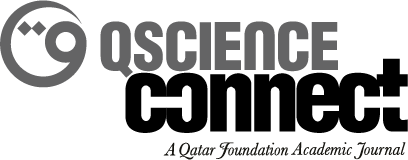QScience Connect - 1-Special Issue on Translating the Gulf: Beyond Fault Lines, February 2016
1-Special Issue on Translating the Gulf: Beyond Fault Lines, February 2016
-
Instigating social change: Translating feminism in the Arab world and India
More LessThe most common accusation levelled at those working in gender studies in the Arab world is tied to the fact that they are commonly viewed as dealing with a “Western” concept; corrupting the cultural and traditional value system of the Arabo-Islamic heritage of the region. Linguistic resistance to this field is an obvious impediment to its progression, with a range of dissatisfactory and often conflicted terminology meant to distance the language from the very concept of feminism: Nassawiyar Unthawiya, both alien-sounding and cumbersome. Engaging in the act of translation in a linguistic and cultural vacuum means that the translator becomes an active agent in developing and shaping concepts associated with Feminism, while simultaneously conveying the social and moral values that are associated with the quest for female empowerment in the West. This same burden of shaping concepts and creating them while actively engaging in the act of translation was faced by Indian translators of feminism and those working in the field of gender studies beforehand. This paper will attempt to look at the experience of the importance of translation in the field of gender studies in the developing world and the similar hurdles and triumphs that were experienced by those working in the field in India and in the Arab Middle East.
-
Embedding TQM in UAE translation organizations
More LessAlthough there is a long tradition of active translation work in the Arab world, some see a need to make improvements. The number of translation projects in the region has grown exponentially in recent years, with a notable increase in translations into Arabic from English, as well as from other languages. Achieving high quality translations continues to require high levels of linguistic and cultural competence from translation professionals; however, new forms of management are required in the context of technological change, computerization, increased specialization and complexity in the process of translation. The practice of translating has therefore become a corporate rather than an individual task, and is often performed in the form of projects within specialized translation and publishing organizations. This research addresses a gap in research in this field, relating to the evaluation of quality management of English to Arabic translation projects, and to the relative neglect of Total Quality Management (TQM) and associated tools in the management of translation projects as relevant means to improve processes in this field. This paper explores English to Arabic translation projects in the United Arab Emirates and puts forward a specific framework for implementing TQM in translation project organizations, including suggested key quality indicators and key performance indicators.
-
رهانات الترجمة وسيادة الهوية في الرواية النسائية السعودية
More Lessملخصلقد تحول البحث في رهانات الترجمة نتيجة تأثره بعوامل معرفية مستحدثة في علم اللغة وعلم اللسانيات عامة إلى الاهتمام بقضية الهوية وسلطة التأويل بوصفها مسألة ذات طبيعة متعددة ومختلفة الحدود بسبب اختلاف التجارب الأدبية التي نتناولها بالدراسة والتحليل. والترجمة تدعونا للانتباه إلى تعددية المعاني التي ينتجها النص الإبداعي، إذ أن كل نموذج روائي اعتمدنا عليه في هذا البحث إنما هو في جوهره ناجم عن تحولات حصلت في النموذج الروائي الأصلي خلال هجرته إلى بيئة ثقافية ولغوية مغايرة. فهل يعني ذلك أن كل عملية ترجمة لعمل روائي هي تحول يبشر بنموذج جديد محافظ على جميع المستويات الاجتماعية التاريخية والثقافية المحمول عليها النموذج الأصلي؟ أم أن هذا التحول في لغة الخطاب الروائي يبقى دائمًا رهين خيانة غير مقصودة لهوية الأصل، باعتبار أن كل مجتمع هو بمثابة نموذج له نسقه ومنظومته الفكرية والثقافية التي تتكفل دائمًا ببلورة رؤية عامة تحدد علاقة ذلك المجتمع مع تاريخه وحضارته.
-
Mapping the Gulfs of translation studies
More LessThis paper is concerned with an evaluative overview of Translation Studies (TS) as a rapidly growing interdiscipline through the different attempts to map it. Its main preoccupation is first to examine the trends of some contemporary research in Translation Studies and describe the growing fragmentation it is undergoing. Second and as a matter of consequence, it will also overview some teaching trends by looking at some of the most favored streams of specializations at the postgraduate levels using examples from universities in North America and the Gulf. This will finally allow the author to assess the extent and impact of the mutual distances and ignorance these subfields may encounter within the same discipline, namely through a comparison with sociology, and the way it has established the subfield of metasociology and how this experience could extend to TS.
Most Read This Month


